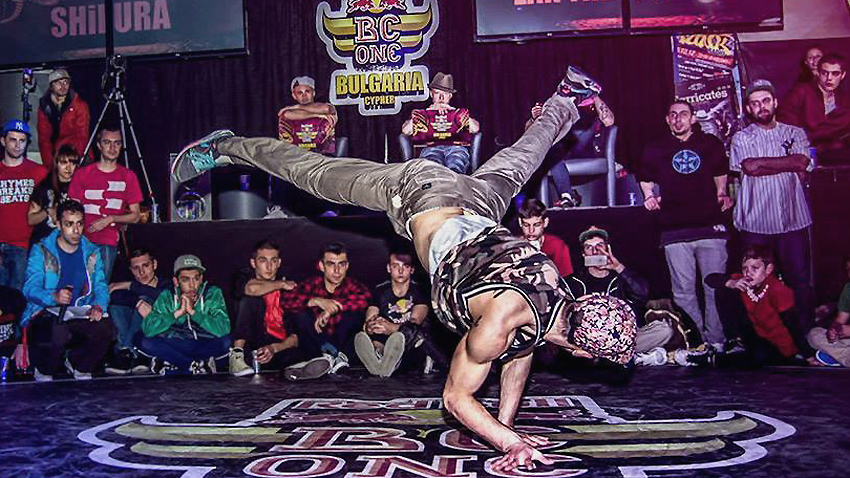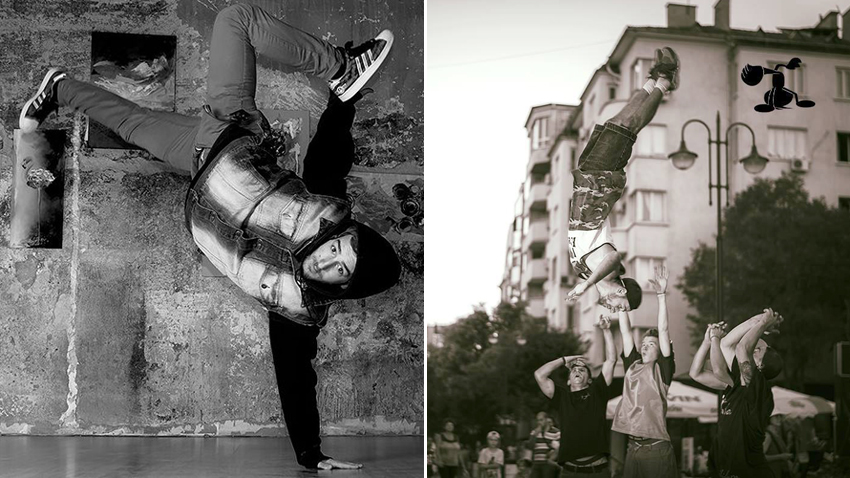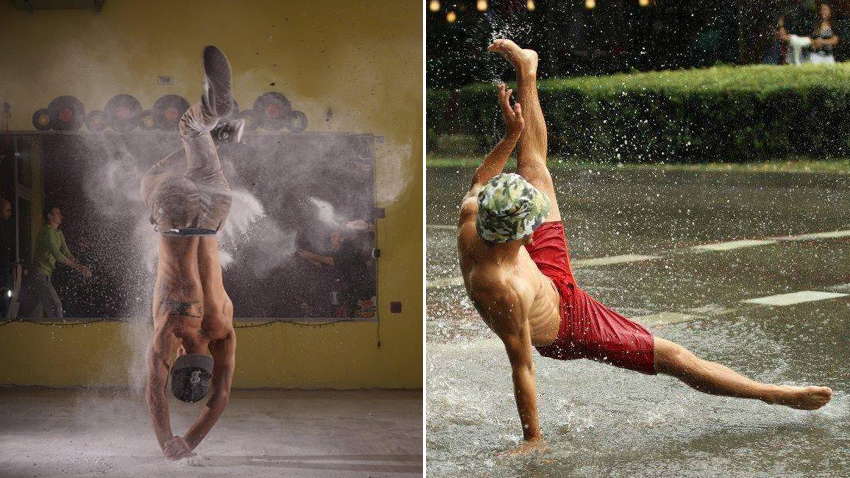“I was awarded with a trip to Essen. We arrived one day earlier and went to the warm-up party. This year it had a new conception. Breakers competed in 8 rounds. I joined the event without knowing that it was a competition and placed among the best eight dancers. I danced together with a skillful German boy and we made it to the final. I could not believe that, because all contestants were at a very high level. We won the final battle with 10 votes to 0”, Stefan explains.

Stefan had other successful performances on the dancing podium as well. He won a series of prizes in Bulgaria. He also won international awards in Romania and Serbia. His nickname Shifura comes from Shifu, this is how people call the masters in Kung Fu. One of his schoolmates introduced him to the world of brake dancing. Stefan has been practicing his favorite dance on a daily basis in the past eight years.
“Break dancing is an interesting part of the hip hop culture. Hip-hop consists of 4 elements: rappers, graffiti artists, break and DJs”, Shifura explains.

The hip-hop culture emerged in the USA in the 1970's. It became popular in Bulgaria in the 1990's. Stefan was attracted by that culture, because it gives a feeling of freedom and because he likes high adrenaline. That is why Stefan studies at the National Sports Academy majoring Snowboard Coaching. Besides, breaking allows him to develop his acrobatic skills. You must have a strong physical endurance, because there are many difficult and dangerous elements in breaking. You must be also very dynamic, because breaking requires a lot of power, Shifura further said. Imagination is also very important:
“Break is a free dance. You can use all types of dancing techniques and elements. However, it has a foundation as well. One can't read if he doesn't know the alphabet. The same rule applies to break dancing. Once you learn the basics you can let your imagination run free and do anything you want on the stage.”
Stefan also told Radio Bulgaria that he learnt a lot from the older generations Bulgarian break dancers:

“Currently, the level in Bulgaria is not that high. The number of break dancers is low and we help one another a lot. All teams gather in one hall and practice together. Things looked different in the past, because breaking is a battle where you try to defeat your opponent through dancing.”
In Stefan's view, youth culture in Bulgaria should receive higher support:
“Breaking competitions in Bulgaria are organized very rarely. Most of them are too small and do not encourage breakers enough, whereas in other countries many large breaking events are held on an annual basis. There was a big annual competition in Bulgaria which was held for 10 consecutive years. It was organized at a very high level. Breakers from all parts of the globe attended that event. Now, the situation is much worse and that culture has been deteriorating.”
Currently, Stefan is preparing for his next competition, which will be held in Spain next month.
English version: Kostadin Atanasov
Exactly 3 years ago, on February 24, Russia’s invasion of Ukraine began – an event that woke up Europe 77 years after the end of World War II and called into question one of the main goals of the EU – preventing a new armed conflict on the continent...
The festive service for the consecration of the new Bulgarian Orthodox church in London is led by His Holiness Daniil , Patriarch of Bulgaria, who also officiated at the Ressurection Vespers on Saturday. Hundreds of lay people-official guests and..
The Martenitsa Festival was held in Brussels f or the third consecutive year . Cultural organizations from Bulgaria, Romania and Moldova presented their country's traditions related to the "Baba Marta" holiday, which heralds spring. The initiative..
Exactly 3 years ago, on February 24, Russia’s invasion of Ukraine began – an event that woke up Europe 77 years after the end of World War II and called..

+359 2 9336 661
